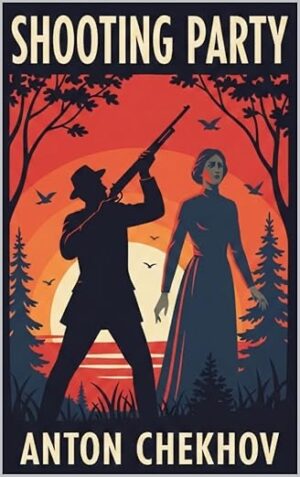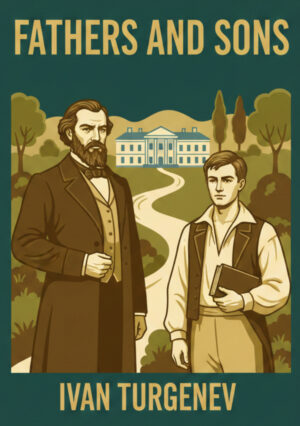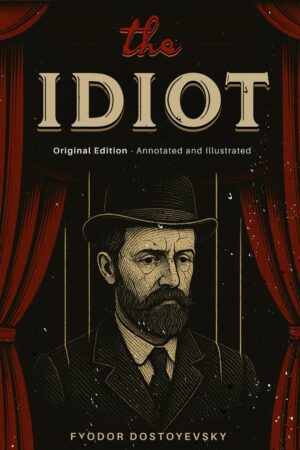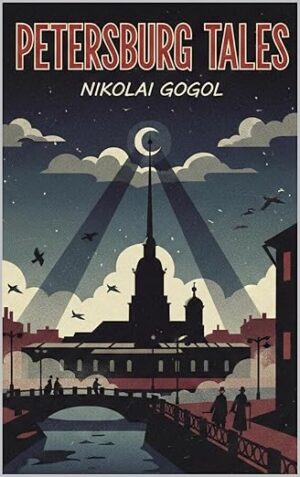Description
A European professor develops a criminal obsession with his landlady’s 12-year-old daughter. To gain access to the girl, he marries her mother. When the mother dies unexpectedly, Humbert legally takes custody, launching a prolonged, twisted journey of psychological manipulation and abuse across the American highways. Their forced companionship, masked as a road trip, isolates Lolita completely until she manages to escape with a dark rival, Clare Quilty. Years later, Humbert finds Lolita, now broken and pregnant, and is driven to a final act of revenge: the cold-blooded murder of the man who took her away.
Browse the table of contents, check the quotes, read the first chapter, find out which famous book it is similar to, and buy “Lolita” on Amazon directly from our page.
1
Lolita, light of my life, fire of my loins. My sin, my soul. Lo-lee-ta: the tip of the tongue taking a trip of three steps down the palate to tap, at three, on the teeth. Lo. Lee. Ta.
She was Lo, plain Lo, in the morning, standing four feet ten in one sock. She was Lola in slacks. She was Dolly at school. She was Dolores on the dotted line. But in my arms she was always Lolita.
Did she have a precursor? Indeed she did. I’ll go further: there might have been no Lolita at all had I not loved, one distant summer, an initial girl-child. In a princedom by the sea (almost like Poe’s).
When was that?
Approximately as many years before Lolita was born as my age was that summer. You can always count on a murderer for a fancy prose style.
Ladies and gentlemen of the jury, Exhibit Number One is what the seraphs envied, the misinformed, simple, noble-winged seraphs of Edgar Poe. Look at this tangle of thorns.
2
I was born in Paris in 1910. My father was soft-hearted, light-tempered—and a genetic vinaigrette: a Swiss citizen, half-French, half-Austrian, with a Danubian streak. (I shall now pass around some charming, glossy-blue postcards).
He owned a luxurious hotel on the Riviera. His father and both grandfathers traded in wine, diamonds, and silks (distribute them yourselves). At thirty, he married an Englishwoman, the daughter of the mountaineer Jerome Dunn, granddaughter of two Dorset vicars, experts in intricate subjects: palaeopedology and Aeolian harps (distribute them yourselves).
The circumstances and cause of death of my quite photogenic mother were rather original (picnic, lightning); I was then only three years old, and all that remained of her for me in the hollows and dips of memory was some warm dead-end in the darkest past, behind which—if you can still bear my style (I write under supervision)—sets the sun of my early childhood: you are all probably familiar with those fragrant vestiges of the day that hang with midges above a blossoming hedge, and through which you suddenly pass on a walk, at the foot of a hill, in the summer twilight—a blind warmness, golden midges.
My mother’s older sister, Sibyl, who was married to my father’s cousin—who soon deserted her, by the way—lived in our house as a sort of unpaid governess or housekeeper. I subsequently heard that she had been in love with my father and that he had thoughtlessly taken advantage of her feelings on a rainy day—but had forgotten everything as soon as the weather cleared.
I was extremely attached to her, despite the severity—the fateful severity—of some of her rules. Perhaps she wished to make of me a more virtuous widower than my father. Aunt Sibyl had pink-rimmed azure eyes and a waxy complexion. She wrote poetry. She was poetically superstitious. She said she knew when she would die—namely, when I turned sixteen—and so it happened. Her husband, an experienced traveler for a perfume company, spent most of his time in America, where he eventually founded his own business and acquired some property.
I grew up a happy, healthy child in a bright world of picture books, clean sand, orange trees, friendly dogs, seascapes, and smiling faces. The magnificent «Mirana Palace» hotel revolved around me as a private universe, a whitewashed cosmos, amid another, blue, immense, sparkling outside. Everyone loved and spoiled me, from the kitchen scrub in an apron to a king in a summer suit. Elderly American ladies, leaning on canes, bowed over me like Leaning Towers of Pisa. Ruined Russian princesses could not pay my father, but bought me expensive candies.
My father, mon cher petit papa, took me boating and cycling, taught me to swim, dive, and water-ski, read me Don Quixote and Les Misérables, and I adored and honored him and was happy for him when I happened to overhear servants discussing his various mistresses—tender beauties who paid me a great deal of attention, cooing over me and shedding precious tears over my entirely cheerful motherlessness.
I attended an English school a few kilometers from home; there I played rackets and fives (hitting a ball against a wall with a racket or my palm), received excellent grades, and got along perfectly with both my classmates and tutors. Up until I was thirteen (i.e., until I met my little Annabel), I recall only two distinctly sexual experiences: a solemn, decorous, and purely theoretical conversation about certain unexpected phenomena of adolescence, which took place in the school rose garden with an American boy, the son of a then-famous film actress whom he seldom saw in the world of three dimensions; and a rather interesting physiological response to the pearl-matte photographs with infinitely tender shadowy recesses in Pischon’s luxurious album, «La Beauté Humaine», which I once stealthily retrieved from under a pile of marbled volumes of the London «Graphic» in the hotel library.
Later, my father, with his characteristic good-nature, provided me with information of this kind that he thought I might need; this was in the autumn of 1923, before I entered the gymnasium in Lyon (where I was to spend three winters); but alas, that summer my father was absent—touring Italy with Mme de R. and her daughter—so I had no one to complain to, no one to consult.
3
Annabel was, like the author, of mixed descent: in her case, English and Dutch. I remember her features much less clearly now than I did before I met Lolita. Visual memory has two approaches: in one, you manage to skillfully recreate the image in the brain’s laboratory without closing your eyes (and then Annabel appears to me in general terms, such as: “honey-hued skin,” “slender arms,” “cropped light-brown hair,” “long eyelashes,” “a large bright mouth”); in the other, you close your eyes and instantly evoke on the dark inner side of the lids an objective, optical, perfectly faithful reproduction of the beloved features: a little phantom in natural colors (and that is how I see Lolita).
Allow me therefore to confine myself in describing Annabel to the decorous remark that she was a charming girl a few months younger than me. Her parents, surnamed Leigh, old friends of my aunt, were as scrupulous about propriety as Aunt Sibyl. They rented a villa near the «Mirana.» I fiercely hated the bald, brown Mr. Leigh and the fat, powdered Mrs. Leigh (née Vanessa van Ness).
At first, Annabel and I talked, so to speak, in circles. She kept lifting handfuls of fine beach sand and letting it stream through her fingers. Our brains were tuned to the pitch of intelligent European teenagers of that time and milieu, and I doubt that any individual giftedness could be found in our interest in the multiplicity of inhabited worlds, tennis tournaments, infinity, solipsism, and such things. The tenderness and vulnerability of young animals aroused the same sharp suffering in both of us. She dreamed of being a nurse in some starving Asian country; I dreamed of being a famous spy.
Suddenly we found ourselves madly, clumsily, shamelessly, agonizingly in love with each other; hopelessly, I should add, for our frantic urge for mutual possession could have been assuaged only if each of us had actually imbibed and assimilated every particle of the other’s soul and flesh; yet we could not even find a place to copulate, as children of the slums easily do. After one failed nocturnal rendezvous in her garden (to be told in the next chapter), the only thing allowed us, in terms of meeting, was to lie within the visual, if not auditory, reach of adults, on the most crowded part of the beach.
There, on the soft sand, a few feet from the grown-ups, we lay all morning in the numb ecstasy of love’s torment, and availed ourselves of every blessed flaw in the fabric of time and space to touch each other: her hand, through the sand, crept toward me, moved closer, moving the narrow tanned fingers, and then her pearly knee set out on the same long, cautious journey; sometimes a casual mound, built by other, younger children, served as a cover for a hasty, salty kiss; these imperfect contacts brought our healthy and inexperienced bodies to such a state of irritation that even the coolness of the blue water, under which we continued to pursue our goal, could not calm us.
Among the treasures I lost in later wanderings was a small photograph taken by my aunt, capturing a group seated at a sidewalk café table: Annabel, her parents, and the very sedate Dr. Cooper, a lame old man who was courting Aunt Sibyl that summer. Annabel did not come out too well, as she was caught at the moment she was about to sip her chocolat glacé, and one could only recognize her (as I recall the snapshot) by her thin bare shoulders and parting amidst the sunny blur into which her beauty was gradually and irrevocably dissolving; I, sitting in profile, somewhat apart from the others, came out with a kind of dramatic clarity: a sullen, thick-browed boy in a dark sports shirt and white, well-cut shorts, leg over leg, gazing away.
The photograph was taken on the last day of our fateful summer, only a few minutes before our second and final attempt to cheat fate. Under some extremely transparent pretext (there was no chance for another, and nothing mattered anymore), we left the café for the beach, where we finally found a secluded spot, and there, in the lilac shadow of pink rocks that formed a kind of cave, we hastily exchanged greedy caresses, the only witness to which was a pair of dropped dark glasses. I was on my knees, about to take possession of my darling, when suddenly two bearded bathers—an old sea-dog and his brother—emerged from the water with shouts of obscene encouragement, and four months later she died of typhus on the island of Corfu.






Reviews
There are no reviews yet.